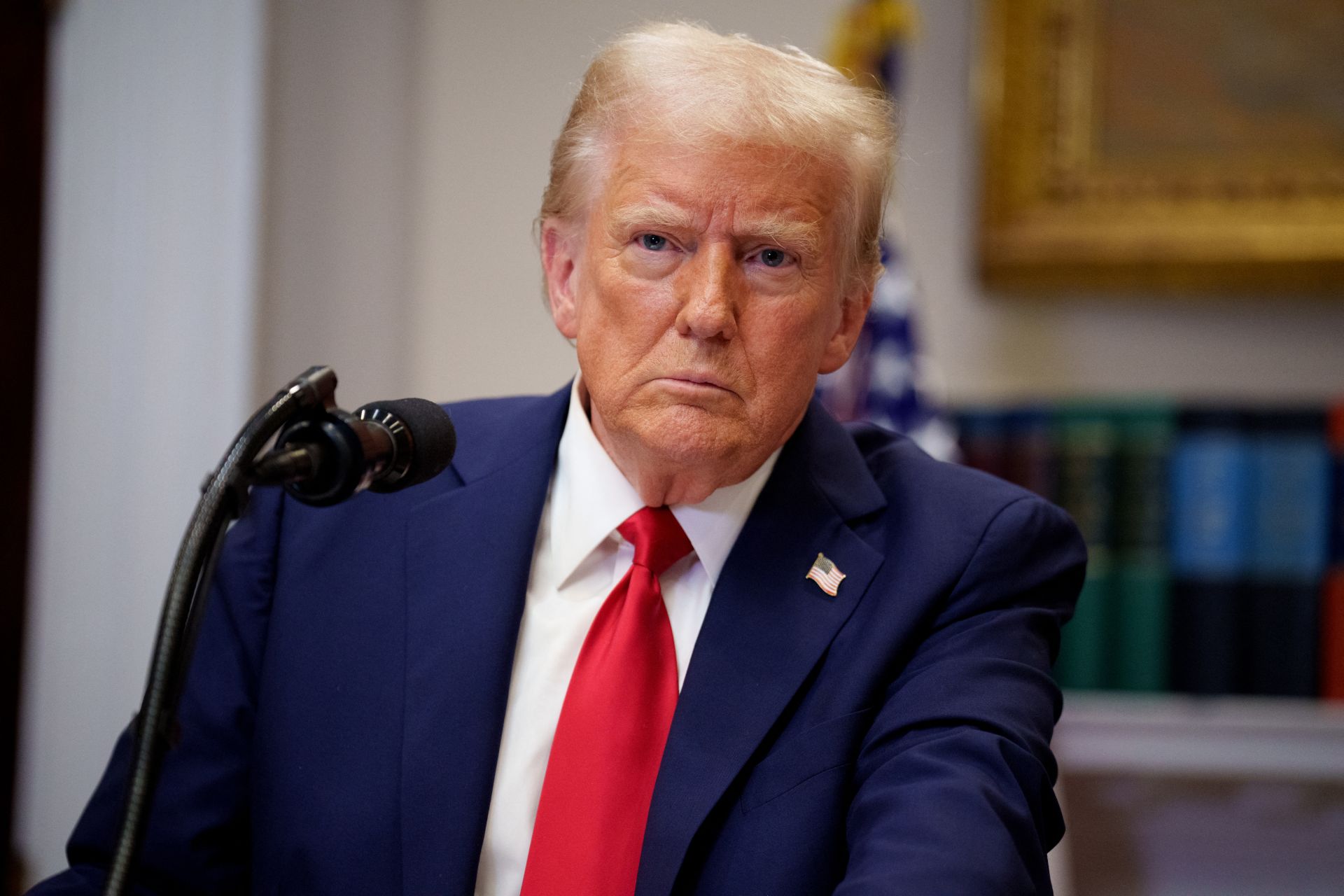- Home
- Middle East
- By challenging The Right To Land, Trump Is Destabilising The American Identity

©ANDREW HARNIK / GETTY IMAGES NORTH AMERICA / Getty Images via AFP
If it succeeds, Donald Trump's overhaul of the right to citizenship by virtue of birth in the country could profoundly reshape the United States, wiping out a founding principle that has been applied for more than 150 years by this world power, according to several experts.
Barely inaugurated as the 47th American president, the Republican billionaire signed a flurry of major decrees, notably on his top priority: immigration.
The most striking of these orders a reversal of the right to citizenship by virtue of birth in the country (Droit du sol), a principle enshrined in the 14th Amendment to the US Constitution.
‘All persons born or naturalized in the United States, and subject to its jurisdiction, are citizens of the United States and of the State in which they reside’, stipulates this text, ratified in 1868, in an America seeking reconciliation after the Civil War.
Already challenged in court, this decree would prohibit the federal government from issuing passports, citizenship certificates or other documents to children whose mothers are in the United States illegally or temporarily, and whose fathers are not American citizens or permanent residents - holders of the famous green card.
According to Gil Guerra, an analyst at the Niskanen Center, this is enough to call into question the very foundations of America.
Droit du sol ‘has encouraged assimilation by giving people born here an immediate sense of belonging’, he reminds AFP. ‘It also imposes a responsibility on the children of immigrants to think of themselves as Americans and to be patriotic.’
Unlike other more fragmented nations, Americans are renowned for their attachment to the Star-Spangled Banner, the national anthem - sung before every American football match - and the army and its veterans.
According to Mr Guerra, going back on the right to land could weaken social cohesion.
Where Russia has long had to deal with separatist regions, populated by people who have no sense of belonging to the nation, ‘the United States has managed to avoid this altogether’, he points out.
‘Our political identity has been based for centuries on the principle that if you are born in the United States, you are an American’, he insists.
The 14th amendment is ‘crystal clear’, says Aaron Reichlin-Melnick, a researcher at the American Immigration Council.
In his view, calling into question jus soli would not only disrupt the lives of the children of illegal immigrants.
‘Before, all you needed was a birth certificate proving that you were born here. Now you have to produce a lot of documents about your ancestry and your parents‘ citizenship,’ he told AFP. ‘It makes everyone's life more difficult.’
Donald Trump's supporters are often anxious about the changing demographics in the United States. They regularly accuse immigrants and their children of capturing social benefits that they believe should go primarily to American citizens.
But this situation, made possible by the right to land, is also of great benefit to the country,’ says Mr Guerra. In particular, immigration makes it possible to have enough workers to finance social security programmes and to respond to labour shortages, which are common in sectors such as agriculture and construction.
It also helps to offset a falling birth rate, a crucial advantage for this superpower and its army.
‘Not having a young population likely to serve in the army in the event of conflict (...) could potentially put the United States in danger’, points out Mr Guerra.
On Tuesday, the decree signed by Donald Trump was challenged in court by 22 American states, including California and New York. Led by the Democrats, the case has every chance of going all the way to the Supreme Court.
Until now, legal experts seemed to agree that the right to land was an inalienable principle that could not be challenged.
But now that the country's highest court has a majority of conservative judges, shaped by Donald Trump during his previous term in office, there are no longer any absolute certainties.
The upholding of the presidential decree by these judges is not an ‘inconceivable hypothesis, contrary to what I would have said in 2019’, Amanda Frost, a law professor at the University of Virginia, told the New York Times. ‘Things are moving.’
With AFP.
Read more



Comments